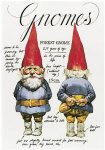Fallen Seraph
First Post
Yeah Planescape isn't for everyone, I like the New Weird genre so Planescape (specifically Sigil) is gold to me.Thanks, FS.I suspect that part of my unappreciation of Gith is that Planescape just didn't turn my crank (I got into D&D around 1998, after Planescape had crested and fallen). So I didn't grow to like them because I wasn't intrigued by anything planar.
Now that you mention elans, that is really giving me a Dollhouse vibe. Not only that, but you can have the "Wolf in SHeep's Clothing" without resorting to shapeshifters. (Granted, I really like shapeshifters).
In fact, I imagine you can also get the "created" feel to elan; they're not human, but artificial (in the sense that they are "made", even though they used to be people). So it can raise issues of identity, if that sort of dilemma does it for you.
As for the identity issue, while that is a concept I find awesome, it doesn't quite fit in the Dollhouse fasion. In that a Elan does remember his/her past as a Human. BUT! This is something that can be easily altered, one particular change I made is that the Elan ritual gives the Human a old Elan mind, so they get flooded with memories and have to fight to keep their own, usually making a weird mix (or losing it entirely).
Now in the idea that they are identified as Humans but are something else and must begin to understand what it is to be something else (this works with keeping the past memories) definitely good concept building there.
Also, Dollhouse back for season 2 awesome!
Edit: Also just thinking, you could have the ritual mess up and screw up how memories/identity works as well so not entirely mess with the fluff.
Last edited:




